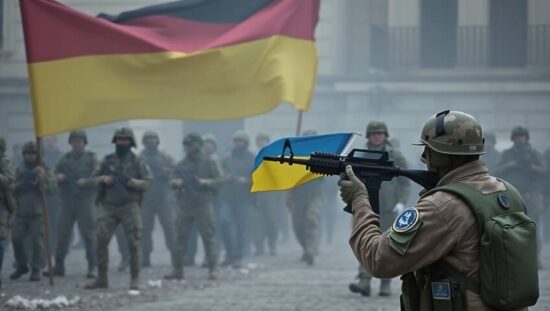The negotiations within the minority government regarding a new military aid package for Ukraine, worth around three billion euros, have reportedly failed. According to a media report, German Chancellor Olaf Scholz (SPD) has blocked the initiative. Along with Defense Minister Boris Pistorius (SPD), Foreign Minister Annalena Baerbock (Greens) had aimed to send military equipment, particularly for air defense and the strengthening of artillery, worth three billion euros to Ukraine.
Baerbock now fears a de facto halving of military support for Ukraine compared to the previous year, the report says. “It’s important that we don’t cut our defense aid as planned by three billion euros and almost halve it” she told the SZ. “It’s about securing the supply of Ukraine in this critical time with essential air defense and also ammunition.”
“Air defense and our military support are the life insurance of Ukraine” the foreign minister added. “They protect hospitals, power plants and kindergartens from being reduced to rubble. They save lives and give hope. And only a strong Ukraine will be able to force Putin to the negotiating table and to peace through negotiations.” Cuts would be “absolutely the wrong signal to Putin and also the new US administration.”
In 2024, the military aid had been around seven billion euros. Ukrainian Ambassador Oleksii Mekeiev appealed to German parties to keep the military help for his war-torn country out of the election campaign and still push for a new aid package. “In Germany, there is an election campaign. At the same time, Ukraine is fighting for survival. We did not choose the war. But we must win it” said Makeiev to the SZ.
It’s not just about air defense, but also “more tank destroyers, more armored combat vehicles, more engineer and mine-clearing tanks, more tank and self-propelled howitzers, more artillery ammunition, more multiple-launch rocket systems” said Ambassador Makeiev. “All these things save lives. All these things help us to free people” he emphasized.
The federal government had rejected criticism that the Ukraine aid was losing importance due to the election campaign. Corresponding statements from the Ukrainian side were “perhaps not as strongly directed at the German address as it seems” said government spokesman Hebestreit in response to a query from the dpa news agency on Wednesday. Germany has supported Ukraine since the start of the war with nearly 44 billion euros and is, after the US, the second-strongest supporter. “We always make it clear that we will continue to provide this support and stand unshakeably by Ukraine’s side” said Hebestreit further. Chancellor Scholz has hardly met any other state or government head as often and intensively as Ukrainian President Volodymyr Zelenskyy, most recently two weeks ago in Davos. “The communication channels are close and trustful” said the government spokesman.





